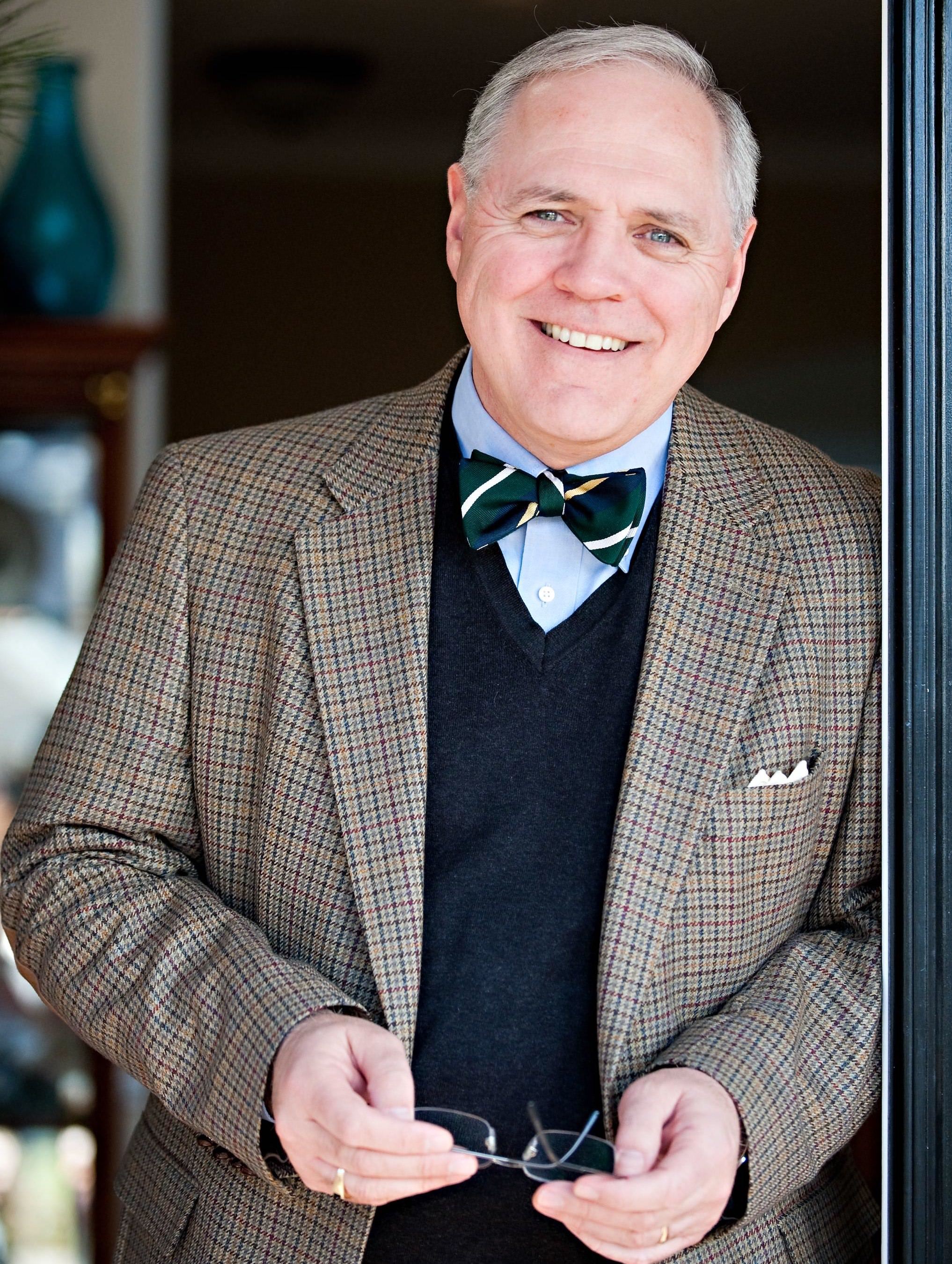3 Point Spiritual First Aid Plan for COVID-19

Who is the most effective person to provide ministry to another person who is hurting? The answer? The person that is most immediately available. Spiritual first aid is very much like physical first aid. You don't have to go to seminary or take courses or be board-certified in order to help another person. In fact, you are all doing this every single day. A kind word, an encouragement, or a Zoom meeting to check on someone, are all instances of spiritual first aid.
As COVID-19 wreaks havoc in our nation, and as spring tornadoes leave death and loss to our people, we need Christians prepared to provide spiritual first aid. I would like to give you a three-point plan to provide this aid to hurting people around you. Given the social distancing reality, the people around you could be loved ones in the same household. Hopefully, soon, we will get an all clear from our federal, state, and local authorities. We will return back to "normal." I believe that this season we are living through is so transformative that we might very likely see a “new normal” after this crisis. Yet, at least, we will be able to enjoy the company of others.
When we do, we will not only return to the everyday trials and tragedies of the human condition but some of those will carry some spiritual depression from the time of isolation. We should all be aware that just as there are high-risk physical maladies there are also high-risk spiritual conditions that make us more susceptible to the emotional, psychological, and spiritual facts of isolation, fear, and trauma when losing loved ones or others that we might know. We need to be ready to provide immediate care.
Here are the three points of spiritual first aid to be able to care for others after COVID-19 and other harrowing circumstances:
1. Look, Observe, Assess
Stress affects our bodies inside and out. We all know this. When we feel blue it can show in our eyes, our facial expressions, and even our posture. This look is a look of love not a look of critique. Remember how Jesus looked at the rich young ruler and loved him. In a similar way observe your friends and family, watch for signs that they might be blue or stressed. The second point is as important as the first point.
2. Listen First, Comment Later
You might listen and hear silence. You might listen and hear a sort of fire hydrant that has been opened up and the water is gushing out. Some of us tend to talk without pause when we are distraught. Listen without commenting. Provide verbal and nonverbal responses that say, "please, go on. I'm listening."
Looking and listening are part of the essential step of diagnosis. Again, you are not a board-certified Christian psychologist, pastoral counselor, or therapist. You’re one human being hearing another human being. The first part of spiritual first aid is simply to assess any wounds. How are they holding up in the present? Have they become so affected by their circumstances that their body itself is now hurting? For example, depression can lead to insomnia. Did you hear them speak about not sleeping well? Spiritual depression can lead to a poor diet. The sudden change of weight or loss of weight both indicate the possibility of spiritual illness that has migrated to physical illness.
Of course, it can happen the other way. For someone who is suffering from chronic illness, the broken body can affect the human soul. God made the human body and soul. If one of those receives a blow from sickness, an accident, or some other reason, the other part is not exempt from that pain.
3. Link or Refer
You could also call this third step "referral." Having assessed the wound, you need to link the hurting person with an appropriate resource. If you have noticed that a person’s spirit seems to be affected and you have listened to them tell their story of hurting, then it’s right for you to link them to pastoral care, Christian counseling, or in the case where the spirit and the body are suffering together, a medical doctor. In fact, almost every situation that I encounter as a board-certified pastoral counselor requires me to refer to a medical doctor. Again, God made us body and soul. I am not qualified to treat the body. I can observe symptoms and then link that person to one who is gifted, trained, credentialed, and recognized by our society to provide that respective level of care.
Linking also includes helping others in their spiritual wounds. while it is good that they find support from those who are gifted and credentialed in helping the spirit or the body, any of us can encourage another believer in the essential disciplines of the Christian life.
These are the essentials of the Christian life:
1. The Bible
A follower of Jesus Christ will become blue if separated from the source of life the Word of God. Jesus said that we do not live by bread alone but by every word that proceeds from the Lord. You need not preach at them. You just need to merely mention how important the Bible is to our spiritual health. It is equally important to our spiritual recovery. Reading the Bible could mean a very ambitious plan of reading the Bible through in one year. However, for most of the people that I see who or hurting, clinging to just one verse is sometimes enough. It is a great gift to share a verse of Scripture with another person. There is life-transforming power in the passage. Selecting the right Scripture to encourage is a matter of selecting the right medicine from the medicine cabinet. Another way to do this is to simply tell them to read the daily lectionary reading from the Book of Common Prayer. For instance, the 2019 Book of Common Prayer by the Anglican Church in America is a wonderful resource for all of us. I am not an Anglican, but I draw heavily from that tradition for my own spiritual sustainment. Each day the lectionary provides a reading in the Old Testament, the Psalms, the Epistles, and the Gospels. If you are providing spiritual first aid this is a wonderful resource for spiritual sustainment. Yes, they will want to be sitting under the expository preaching of the Word of God, studying the Bible with others, and growing in their knowledge of the Bible. However, your work is to just provide a bridge to that next level of treatment. This is a good beginning.
2. Worship
Of course, during the Coronavirus pandemic, congregating to participate in a worship service is not available to us. However, through the means of technology, we are able to take part in worship. But the thing that I would say is most important right now is to cultivate home worship. Take time each day, it can be at the table or before you go to bed or when you wake up in the morning, to spend time with the Lord. This time of private worship or home worship should be part of our lives even when the church doors are open. Their importance is all the more acute during times when the church door is closed.
3. Fellowship
The Bible says that the disciples continued in fellowship, the apostles’ teaching, the breaking of bread, and the prayers (Acts 2:42). While this passage paints a portrait of the common life of worship centered around the ministry of the Word and the ministry of the table, it also underscores the vital aspect of koinonia — fellowship. We can't do that now during the COVID-19 crisis. I should say, "We can't have fellowship the way we would like during this crisis." However, you are able to enjoy fellowship by telephone, by digital media, and other ways that you are now familiar with. Encourage each other to exercise these opportunities for fellowship. Remember that we are not the first to have endured such separation.
Often, believers are separated and must seek out a common life together in the face of a deadly threat. The threat we have today is from a virus. But long after that virus is destroyed, there will be Christians separated from each other because of the threat of the sword.
4. Prayer
In linking the person to the source of healing, of encouragement, of spiritual nourishment, we have to link them to God in prayer. We may need to link them to a physician of the body or physician of the soul (a pastor, Christian counselor, or a medical professional who can help in other ways), but we must always link them to God in prayer. Broken spirits are often unable to articulate their own need. This is why the Holy Spirit prays with us. Sometimes, like Saint Paul, the only utterance we have is unintelligible groans. Yet these too are expressions of devout prayer through the person of Jesus Christ. In fact, the deep groaning of the spirit often represents some of the most articulate prayers, for they best express the very reality of prayer: the lesser creature pleading to the greater Creator. You may also offer that person the Lord's prayer or another liturgical part of Christian worship.
5. Witness
When I say witness, I am speaking about the mandate of the great commission of Jesus Christ. That mandate is not merely upon the Church corporately but is upon the church individually. We know that because we see in the Bible, for instance in Acts 8:4, that, "they went everywhere preaching." This passage is set within the larger context of persecution that was going on in Jerusalem. The believers, except for the apostles, were dispersed throughout the Roman Empire, especially into Asia Minor. As a result, they brought with them the spiritual discipline of witnessing. Sometimes witnessing can take the form of a lengthy discussion about God's grace, our sin, our need of the Savior, and Jesus Christ as the Savior that we long for and the Savior we need. Alternatively, your witness may take the form of encouraging someone, individually, say, in line at Starbucks. Perhaps, you leave a good word with that employee. Perhaps, you give the word of biblical encouragement to a neighbor from across the fence — 6 feet apart, naturally! Witnessing shifts the focus of need from ourselves to another. We all know that participating in helping others tends to help ourselves. Witnessing to the divine gift of Jesus Christ and the call to repent and believe is the greatest help you can ever give another individual. And you will be blessed by doing so.
So, we have learned that spiritual first aid is quite different from professional ministry, medicine, or Christian counseling. It is just what it sounds like: immediate, approximate, non-professional help to stop the spiritual bleeding an individual may be suffering from. To do this we have learned that we follow three steps: looking, listening, and linking. We've also learned the five critical disciplines of the Christian life that bring spiritual healing and spiritual sustainability: Bible, worship, fellowship, prayer, witness. Any one of us can provide this to another.
Finally, always remember that the things that seek to destroy us become in the hands of a loving and sovereign God the very things that bring us together. This is as true as the sword of persecution chasing believers from Jerusalem in the first century A.D. as it is of a pandemic forcing people into isolation in the 21st century. God is love; God is sovereign. God is able and God does take the broken pieces of our lives and shapes these spiritual shrapnel wounds into choice cuts of multi-colored, precious stones, embedded into a mosaic of grace. Over the years, the mosaic of healing begins to reflect the beautiful presence of the risen Lord Jesus Christ in our lives. Christ Jesus is glorified as he collects the shards left by wounds and crafts them as a living testimony of his grace and mercy.
We need spiritual first aid responders now more than ever. In the name of the Father, and the Son, and the Holy Spirit. Amen.
Photo credit: ©GettyImages/belchonock

Originally published April 15, 2020.







